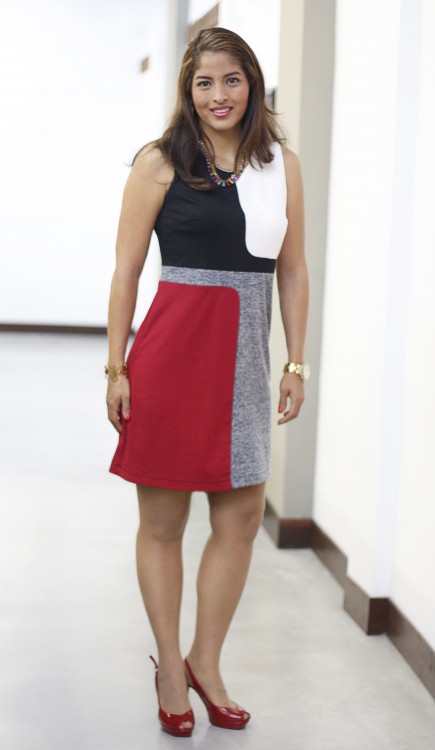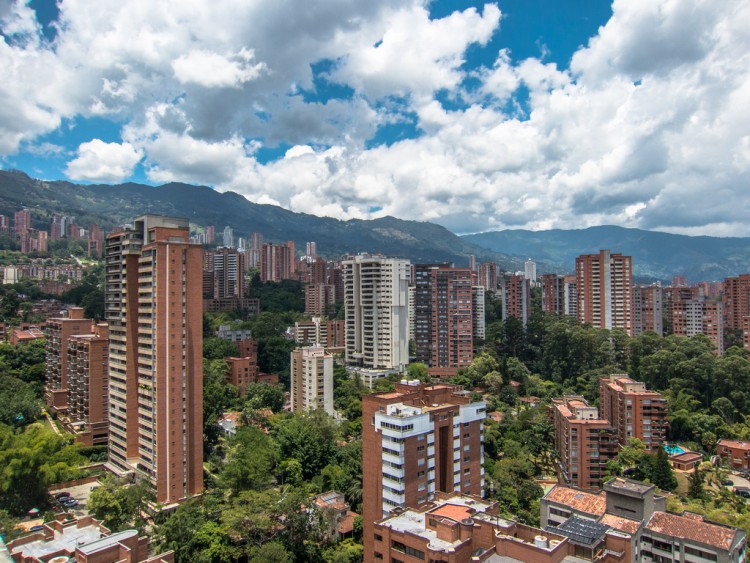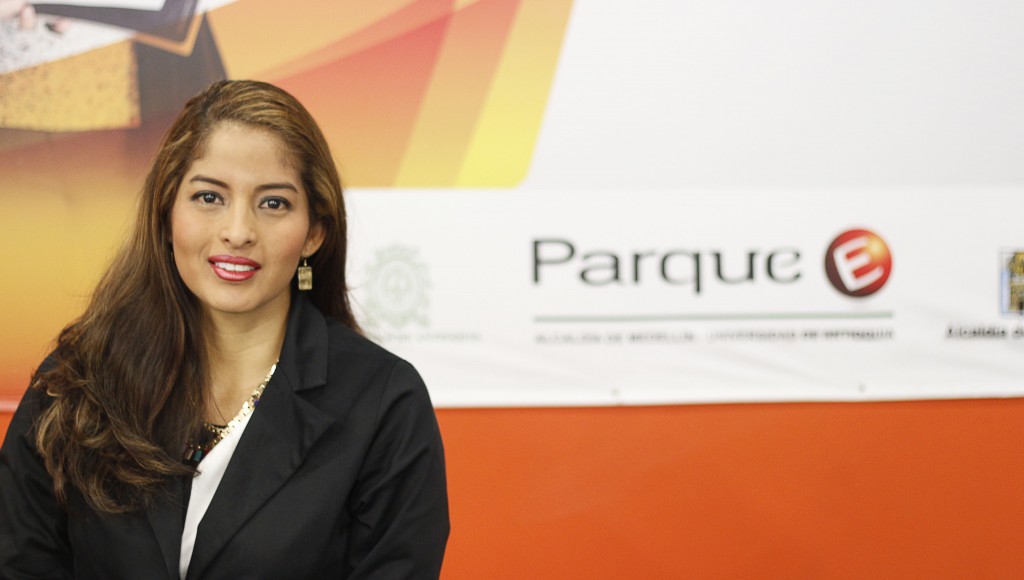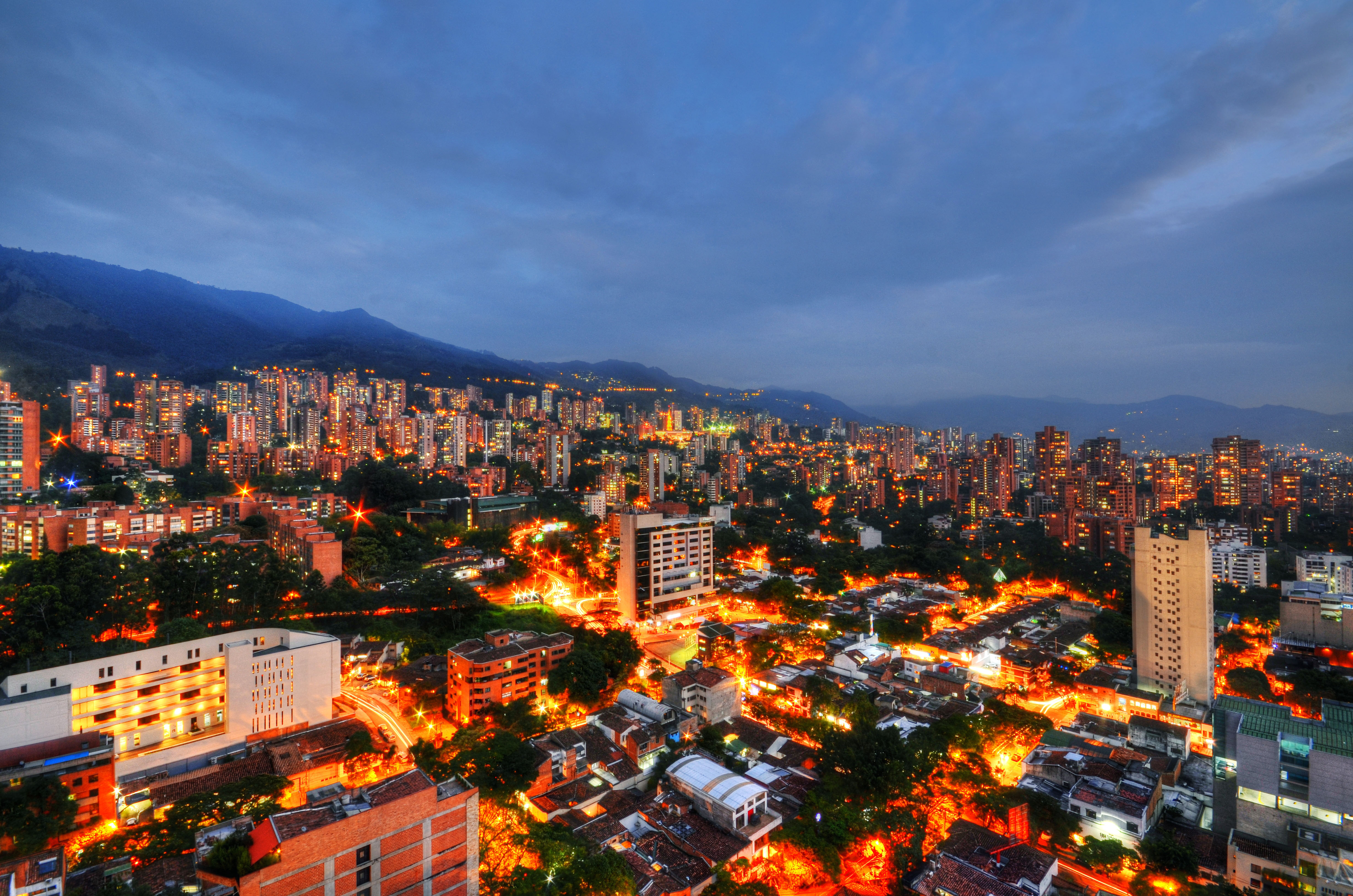Lately, we’ve found ourselves face-to-face with the fact that Medellín is attracting and raising a great deal of entrepreneurs. By that, I mean that not only are we attracting attention from wonderful foreign entrepreneurs, but many of our citizens have that inner drive towards entrepreneurship themselves.
This is why it’s so interesting to see places like Parque E, a platform that supports entrepreneurs, talent, and knowledge in the city (more on that later).
I spoke to Patricia Fuel, the General Director of Parque E, or Parque del Emprendimiento, meaning, The Entrepreneurship Park.
Her job is, for the most part, to make sure the city is committed to funding and supporting Parque E so that the services offered by Parque E can stay, for the most part, free.
I wanted to know more about their role in the city and who can benefit from their services, since I, myself, had never heard of them.

About Parque E
Parque E is located at the north end of the city in the Medellinnovation district, made up of 125 hectares that include Ruta N, Parque Explora, Universidad de Antioquia, among others.
It specializes in accompanying and advising people and companies in functional areas, clients, funding, forming a work team, legally constituted businesses, access to marketing, etc..for free.
The name comes from the general idea of a park, where things come together: not just people but ideas and beliefs and strategies and they interact dynamically. Parque E is the park where big businesses come looking for novelty. Parque E does its best to give support to entrepreneurs in the city so they can be that novelty.
They have an alliance with the government, the mayor’s office, and they have the contacts necessary for entrepreneurs to form unions and for agreements to be reached.
Who Has Benefited from Parque E’s Services?
Fuel told about that about 300 businesses have gone to Parque E for support including companies innovating in plastic injections and automotive pieces, software companies like Rutech and Oriontech.
When I asked about local and foreign entrepreneurship and how they differ, she stood by the fact that a lot of what we do in Latin America is limited, because of, and I was surprised by this, cultural factors.
Simple elements like the fact that a family looks to be in a financially stable phase of their lives to begin innovating.
We’re pushed to reach certain goals first before starting our own businesses: university, experience, etc, and it’s not always the most strategic way.
These factors are what, in Fuel’s opinion, sets us behind developed countries such as The United States.
The ideal is having foreigners and locals working together. That way, the mentality of being the sole shareholder of a small business can fade and give way to the reality of being a partial owner of a large business. As a result, all these cultural factors that keep us, as Colombians, from achieving certain goals can be overcome.

Why We’re the “Most Innovative”
We are constantly talking about the fact that our city received high praise for being the most innovative city in the world. What does that mean and where does it come from?
Fuel argues that the mayor’s office is who we have to thank for a lot of it. They’re transparent and committed. Usually, a mayor will plan for himself when he reaches office, and the last mayor’s projects will be cut off or left behind. This happens often in other cities in Colombia.
However, we’ve seen that mayors in Medellín have a feeling of ascendance, they continue the work of their predecessors as well as begin their own. An example of this is the Museo de Antioquia project, which brought back the museum and renovated it to become what it is today. The museum wasn’t always the beauty we know it to be now, and it’s renovation and relocation took several years and was passed down several mayors’ terms.
Innovation also has its roots in our culture. We can’t say that everything in our culture keeps us from innovating, quite the opposite. While cultural topics might keep us from venturing into businesses at young ages, our innovative creativity is high.
Paisas are known for solving problems, always looking for an advantage; a Paisa is talkative, involved in commercial activity.
Cultural Entrepreneurship
Since I have a literature degree, I regularly look for people who create cultural businesses, who incorporate culture into their careers and projects. When I asked Fuel about the role of Parque E in cultural entrepreneurship, she admitted that the cultural field isn’t strong in their start-ups.
They’ve worked with projects led by the lead director of the Antioquia Ballet to host cultural and artistic events, but it is not a frequent position that they find themselves in.
The Strongest Place for Investment in Medellín
As of now, Fuel sees that the strong topic in entrepreneurship in Medellin is what we call the (TIC) or information and communication technologies, but there is also strength in the possibilities in health research, specifically cardiovascular, medicine in general, research groups, and the University of Antioquia.
Who Does Parque E Benefit?
They support anyone, of any nationality. At the moment they are working with an Israeli and a German though it’s mostly Colombians. If the business idea relates to Medellín, you are eligible for their services.
The best thing: they’re free. In special cases or if you need a larger timeline than what was designed for you, you may see a charge, but it’s rare. They work hard to keep their services free of charge.
Until September 17th, they’re taking project ideas for mobile and web apps, digital content, video/photo, software development. The winning project would have a support system designed for their needs.
They’ve also hosted events where they invite women entrepreneurs to bring forth their ideas and projects to bring forth the gender in areas such as tech, engineering, and medicine.
I’m relieved when I find projects like Parque E because it is proof that there is support out there for individuals who are looking to innovate and explore business ideas.
I’d personally love to see them push forward more cultural projects, but I find that places like this are what set Medellín apart from other cities.
When citizens feel supported in their ideas, they work harder to make them a reality.












Very informative. Thank you!
! Excellent !!
Hi Ximena, I was also born in Manizales, Raised in US. i am an expat can you email me, to give me some advice and pointers.
Thank you
George.